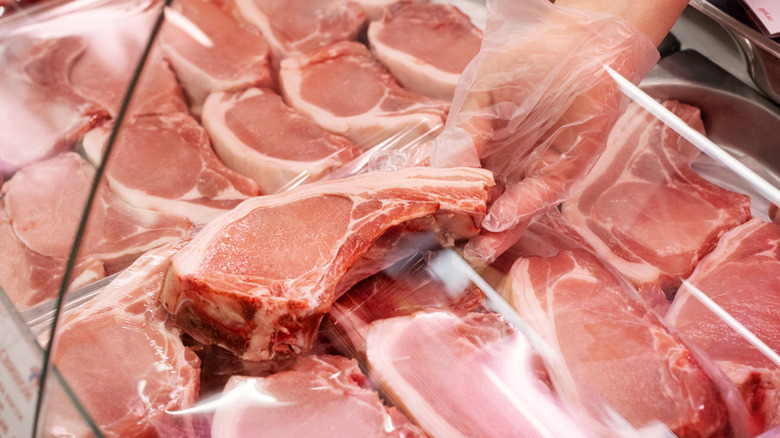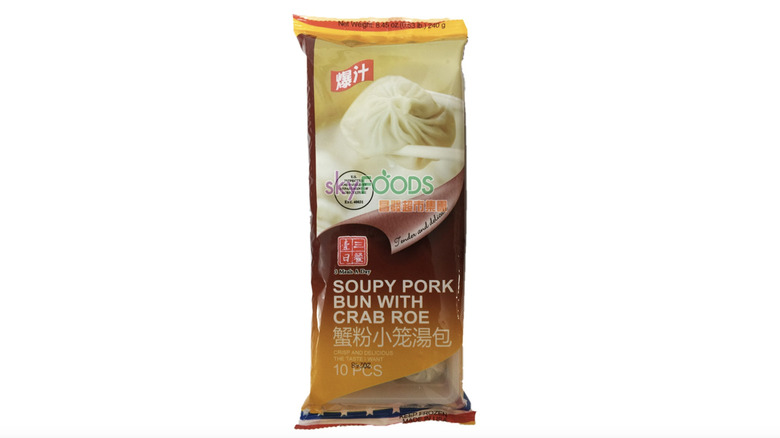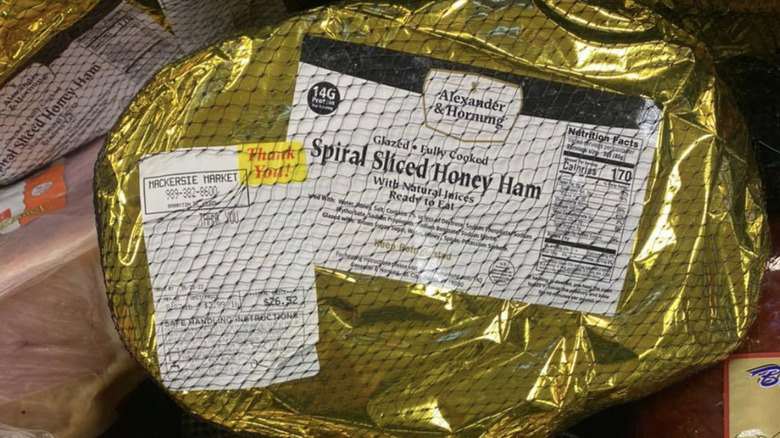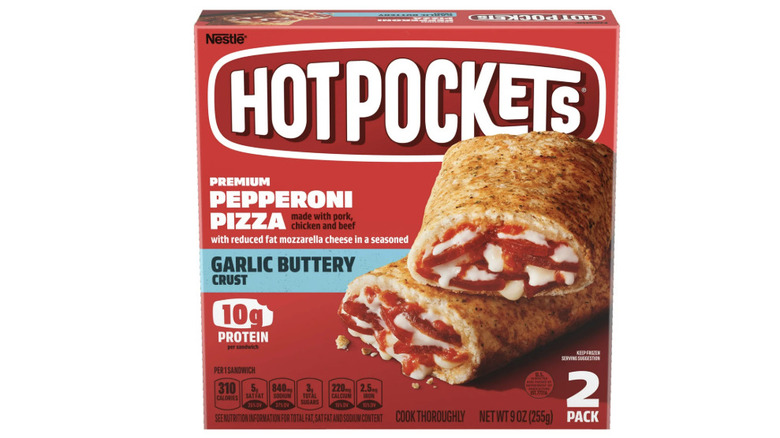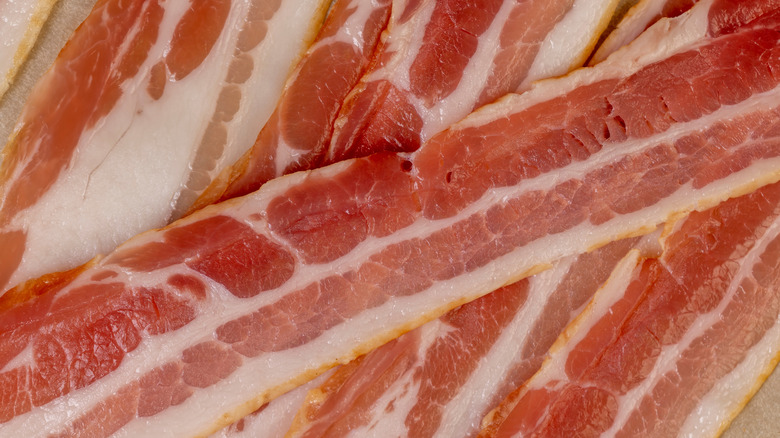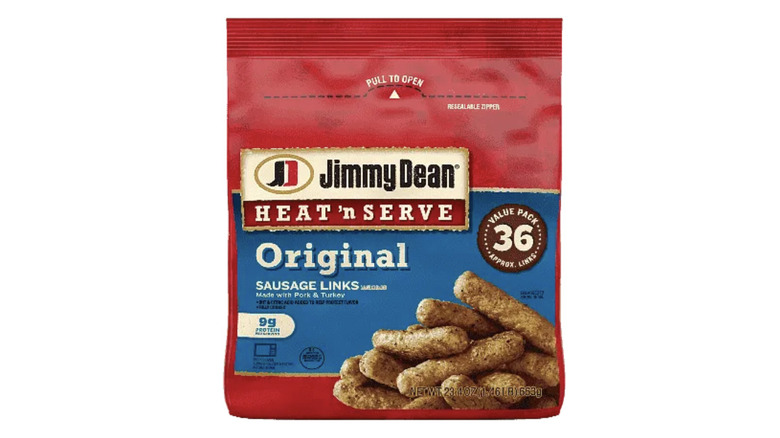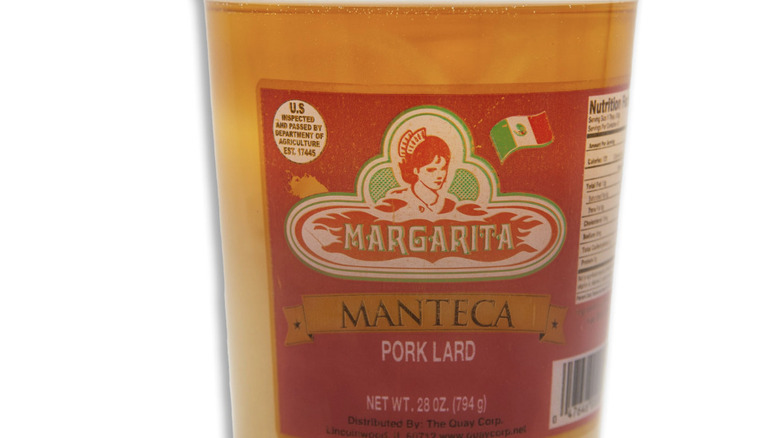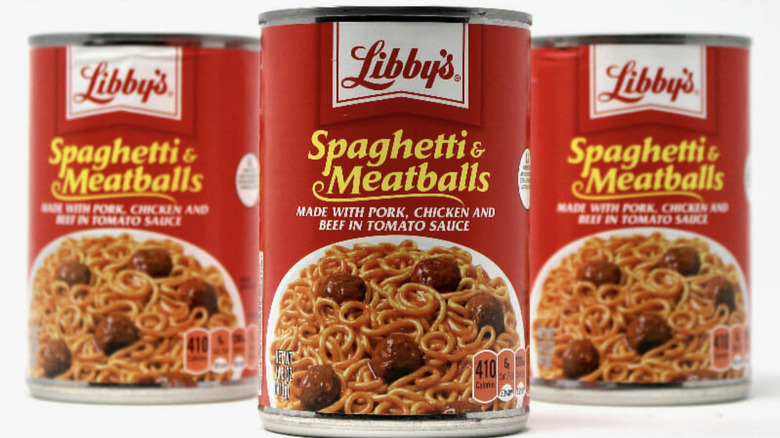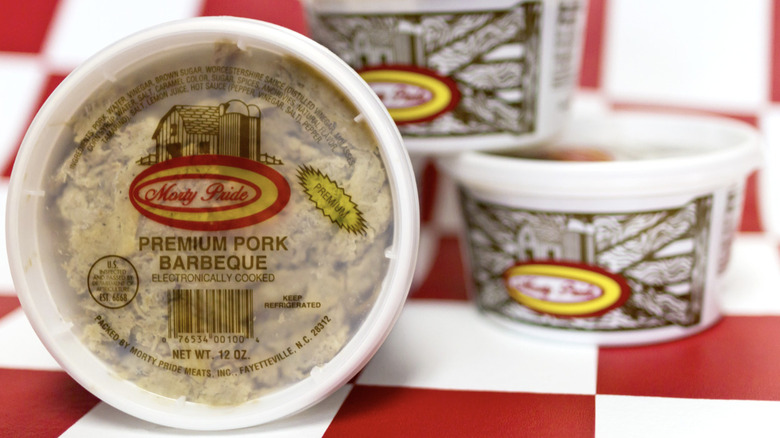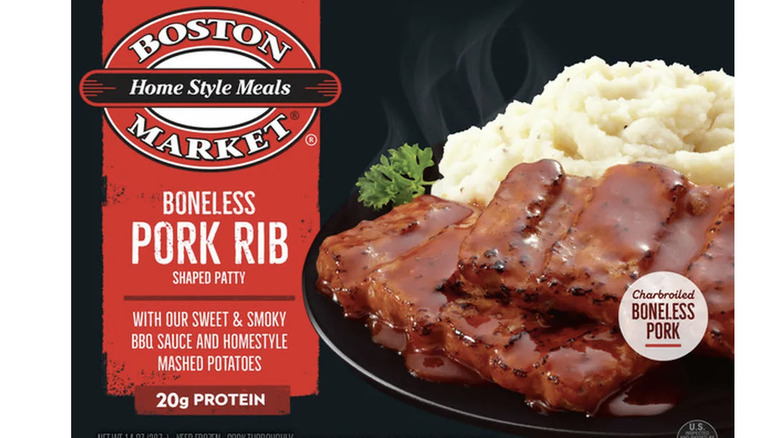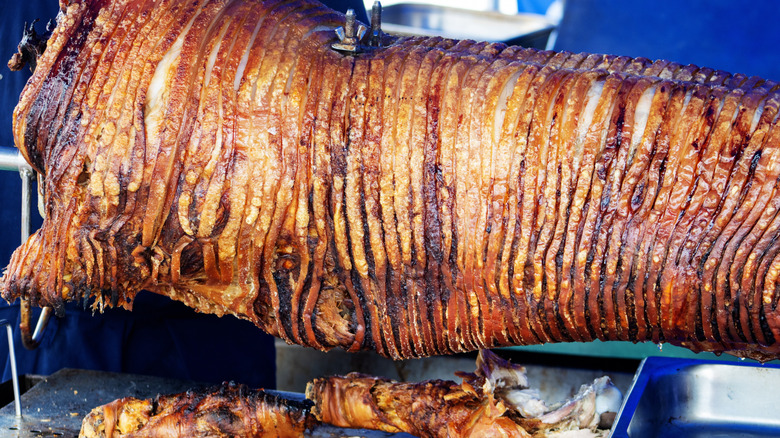Pork Recalls That Affected Millions
Flavorful and juicy, pork is a kitchen favorite that's well suited to various cooking methods. Whether grilled, roasted, braised, or cured, pork shines in both simple and gourmet dishes. From classics such as pork chops and smoky pulled pork sandwiches to more time-consuming creations like buttermilk-braised pork shoulder, the ingredient is as versatile as each cook's imagination.
No matter the method of preparation, it's crucial that pork is handled and cooked correctly, both at home and at the production facilities. After all, meat that's not fresh or has been contaminated with pathogens or other foreign objects can lead to serious health risks. Even small slips in safety standards can be disastrous, leading to illness and, in extreme cases, even death. This is why it's so important that companies are held to rigorous food safety standards. Nevertheless, problems can and do arise, with pork products appearing at the center of numerous recalls over the years.
Ready to find out more about some of the biggest pork recalls in U.S. history? From lack of inspection to contamination with dangerous pathogens, here is a roundup of the most significant pork recalls in recent years.
ACC Central Kitchen recalled pork bun products due to misbranding and undeclared allergens (2025)
Labeling errors and allergen omissions are some of the most common reasons for product withdrawals. This is precisely what happened in 2025 when ACC Central Kitchen recalled close to 65,000 pounds of pork bun products after it was discovered that they contained sesame — an ingredient that wasn't disclosed on the product label. Sesame is one of the nine major allergens identified by the FDA. For allergic individuals, consuming even small amounts of the ingredient can lead to abdominal pain, vomiting, diarrhea, and, in the most severe cases, cause anaphylaxis and even death.
The product at the center of the ACC Central Kitchen debacle was the Soupy Pork Bun With Crab Roe, which had been distributed throughout New York. Despite bearing the official seal to declare that it was inspected and passed by the USDA, the item label left out sesame as one of the product's ingredients. The problem was discovered during a routine Food Safety and Inspection Service (FSIS) inspection.
Impero Foods & Meats pulled raw pork sausage products because of inadequate inspection (2024)
Established in the 1980s, Impero Foods & Meats is a food distributor that offers a wide range of meats such as Italian sausages, veal, chicken, beef, and, of course, pork. In 2024, the Baltimore-based company pulled around 7,500 pounds of raw pork sausage products from the shelves due to a lack of federal inspection. More specifically, after looking into Impero Foods & Meats, the FSIS discovered that the company was manufacturing products while its inspection grant was suspended.
The products affected by the recall included Old World Italian Sausage Links and Ropes, which were shipped to restaurants and grocery stores in Maryland, Delaware, and Pennsylvania. The USDA categorized the alert as a Class I recall, speaking to the severity of the alleged oversight. A Class I recall is reserved for serious cases where the USDA believes consuming the product comes with a high risk.
Interestingly, another pork product recall was announced on the very same day as the Impero Foods & Meats alert. In a completely separate incident, Ralph's Packing Company recalled more than 3,000 pounds of pork and beef bologna products, albeit for a very different reason. Instead of inadequate inspection, Ralph's recall concerned the presence of milk as an undeclared allergen.
Listeria contamination forced Alexander & Hornung to recall fully cooked ham (2021)
A subsidiary of Perdue Premium Meat Company, Alexander & Hornung was a meat processing company known for its deli meats. In 2021, the company hit the spotlight for all the wrong reasons after announcing a massive recall of more than 2.3 million pounds of fully cooked ham and pepperoni products. The recall marked an escalation of an earlier withdrawal of 234,391 pounds of products. The large-scale product recall impacted a wide range of products, including spiral-sliced honey ham, boneless fully cooked ham, and bone-in hickory-smoked shank portion ham. The products had been distributed across the U.S.
The Michigan-based manufacturer pulled the pork products from the shelves due to concerns over Listeria monocytogenes. Often traced back to an unsanitary production environment, the bacteria can lead to a condition called listeriosis, which is characterized by nausea, vomiting, fever, and diarrhea. At its most severe, the condition can be life-threatening. Luckily, no adverse health issues had been reported at the time, although it's important to note that listeriosis can take up to 70 days to show symptoms.
Nestlé recalled pepperoni Hot Pockets due to glass and plastic contamination (2021)
Quick and convenient to prepare, Hot Pockets are a type of turnover filled with a range of ingredients, including cheeses, meats, and veggies. In 2021, Nestlé recalled more than 700,000 of its Premium Pepperoni Pizza Hot Pockets made with pork, chicken, and beef encased in a garlic buttery crust. The frozen pockets could be kept in the refrigerator for up to 14 months, which made the problem particularly concerning since this meant that the item could remain a hazard long after the recall was announced. It certainly didn't help that the snack was distributed nationwide.
The issue surfaced after several consumers complained of finding foreign material in the Hot Pockets, with one individual reporting a minor injury. The contaminants in question included glass and hard plastic fragments — both potentially dangerous if consumed. The FDA was concerned enough to classify the risk as Class I, the highest possible level, indicating the potential for severe health consequences and even death.
Inadequate inspection meant Morris Meat Packing had to recall pork products (2019)
Regular government inspections of meat production facilities serve a very important function. They protect public health, ensuring that inferior or dangerous products don't reach supermarket shelves. In 2019, Morris Meat Packing initiated a pork product recall after it was discovered that the company had bypassed federal inspection. More specifically, 49 of the company's pork products had been manufactured outside of inspection hours over a two-year period from November 2017 until November 2019. The lack of compliance was discovered following an anonymous tip.
The items affected by the recall included more than 500,000 pounds of raw, intact pork products. Just some of the meats in question included fresh pork hocks and feet, fresh pork bacon, fresh pork chops, and fresh pork spare ribs. The products had been sent to both grocery stores and distributors in Illinois. At the time, there were no reports of any adverse health issues linked to eating the pork products.
Jimmy Dean recalled pork sausages due to potential contamination with metal (2018)
Sausage links are popular for several reasons. The pre-sized tubes of ground meat enveloped in either natural or synthetic casing come in consistent portions, making them both easy to prepare and serve. Unfortunately, in 2018, Jimmy Dean's sausage links came under scrutiny after five consumers alleged that they found metal pieces in the meat. Luckily, none of the complainants reported any injuries associated with the pork sausages.
The affected product, Jimmy Dean Heat 'n' Serve Original Sausage Links, was promptly pulled from the shelves. In total, almost 30,000 pounds of the product manufactured at a CTI-owned facility in Owingsville, Kentucky, were recalled. It's unclear how the metal ended up in the sausages, although similar incidents in the past have been linked to faulty production line equipment. Underscoring the serious nature of the recall, the FDA assigned it a Class I rating. Notably, earlier the same year, CTI recalled more than 6,000 pounds of Philly Beef Steak manufactured at the same facility due to possible contamination with listeria.
Buddy's Kitchen pulled pork products from circulation due to salmonella and listeria fears (2018)
Founded in 1974, Buddy's Kitchen got its start producing omelets for the airline industry. Today, the company specializes in frozen food, producing over 350,000 meals each day. Some of the company's frozen meals landed in the spotlight in 2018 due to potential contamination with salmonella and listeria.
The products in question included pork and chicken items produced from October 2017 to October 2018. However, in this case, the contamination didn't originate from the meat but from the vegetables included in the ready-to-eat meals. The affected pork product was the brand's Pancetta Style Crumble & Smoked Fontina Crumble. The contaminated items were distributed in Georgia, Arizona, California, New Jersey, Illinois, Minnesota, and Missouri. In total, Buddy's Kitchen was forced to pull more than 210,000 pounds of pork and chicken products from the shelves.
Salmonella, like listeria, can cause serious illness, particularly in vulnerable groups like the elderly and individuals with weakened immune systems. Salmonella usually causes diarrhea, cramps, and fever.
Quay Corporation recalled pork lard due to a lack of inspection (2018)
Lard is a type of rendered fat where parts of the pig, such as the belly or back, are cooked slowly until the fat liquefies and can be separated from the meat. When cooled, lard turns into an opaque, creamy substance that can be used in frying, baking, sautéing, and grilling. In 2018, Quay Corporation announced a recall of a pork lard product manufactured without federal inspection. The issue came to light after an FSIS inspection following a tipoff that the company was marking uninspected lard for sale.
The product at the center of the safety alert was Margarita Manteca Pork Lard, packaged in 28-ounce plastic cups. Altogether, more than 250,000 pounds of the lard were removed from circulation. At the time of the recall, no reports of illness had been linked to the consumption of the pork lard.
Pieces of metal forced Hormel Foods Corporation to recall canned pork (2018)
Hormel Foods Corporation has a long history. Established way back in 1891, the meatpacking company has grown into one of the most recognizable food brands in the U.S. Notably, Hormel was the first meatpacker to add nutritional information on the labels of its meat products. One ingredient we're pretty sure the company never planned on adding to its labels was metal.
In 2018, Hormel Foods pulled more than 220,000 pounds of canned pork and chicken products from supermarket shelves after consumer complaints about metal fragments in the cans. More specifically, two items were affected — Spam Classic (which, to clarify, is not called "Spam" because it's actually "Something Posing As Meat") and Hormel Foods Black-Label Luncheon Loaf. The pork product was distributed across the U.S. The consumption of the canned pork was linked to several minor mouth injuries, but details about the exact number of cases were not provided.
Marathon Enterprises recalled pork hot dogs over fears they contained bones (2017)
Accidentally biting down on a bone while enjoying a seemingly innocent sausage can be an unpleasant — not to mention harmful — experience. From gum injury and chipped teeth to choking, bone fragments in processed meat is definitely not a welcome find. In 2017, the discovery of bone shards in a meat product led to one of the biggest sausage recalls in history. More specifically, Marathon Enterprises withdrew nearly 7.2 million pounds of hot dog products due to possible contamination.
More than 30 product variants were affected by the recall, some made with pork. Three of the flagged pork items included Sabrett Bratwurst Skinless Beef & Pork Cocktail Franks, Sabrett Natural Casing Pork and Beef Frankfurters, and Sabrett Skinless Pork and Beef Frankfurters. The products were distributed nationwide, making the recall especially extensive and tricky. The issue surfaced after the FSIS was alerted about it through its FSIS Consumer Complaint Monitoring System, with one report of a minor injury.
Conagra Brands pulled meatballs containing pork due to undeclared allergens (2017)
Headquartered in Chicago, Conagra Brands oversees a portfolio of popular labels like Birds Eye, Healthy Choice, Slim Jim, Duncan Hines, and Marie Callender's. Unfortunately, a wide range of products on the market — and more than 40 manufacturing facilities — leave a lot of room for error. This became evident in 2017 when Conagra Brands recalled a range of its spaghetti and pork meatball products because of incorrect labeling that didn't specify the product contained milk, a known allergen. The issue was linked to the use of breadcrumbs that happened to contain milk.
At the end of the day, Conagra Brands withdrew more than 700,000 pounds of spaghetti and meatballs from the market. Some of these included Libby's Spaghetti and Meatballs, Hy-Top Spaghetti and Meatballs, and Food Hold Spaghetti & Meatballs. The pork products were shipped to distributors and grocery retailers across the U.S. At the time of the recall, there were no reports of health issues associated with the consumption of the products.
Morty Pride Meats had to recall pork barbecue over concerns about an undeclared allergen (2016)
Dating back to 1970, Morty Pride Meats is a family-operated meat producer headquartered in Fayetteville, North Carolina. The company prides itself on selling preservative- and chemical-free, locally sourced meat. In 2016, Morty Pride Meats hit the headlines — though not in a way that its customers appreciated. The company recalled more than 230,000 pounds of pork barbeque products that contained an undeclared allergen. The items at the center of the controversy were Morty Pride Pork Barbeque and Morty Pride Premium Pork Barbeque.
The problem stemmed from the fact that the labels on both products failed to list one critical component: Worcestershire sauce. This oversight proved particularly serious because Worcestershire sauce typically contains soy, which is a known allergen. Both pork barbecue items were distributed in North Carolina and South Carolina. Luckily, no reports were made of any adverse reactions to either item.
Potential foreign matter forced Bellisio Foods to recall pork ribs (2015)
Bellisio Foods manages several brands, including Michelina's, Boston Market, Quest, Authentic Asia, and White Castle. The frozen food manufacturer is known for producing a wide range of on-the-go, ready-to-eat meals. One of these is the Boston Market Home Style Meals Boneless Pork Rib Shaped Patty with BBQ Sauce and Mashed Potatoes. The frozen entrée was distributed throughout the U.S., sparking concern after a foreign matter was found in the product.
In 2015, Bellisio Foods recalled 285,264 pounds of the pork item after several consumers complained that they had found glass or hard plastic pieces in their meals. The entrées were manufactured at the company's Bellisio Foods plant in Jackson, Ohio, between mid-September and mid-December. While it was never revealed whether the shards were in fact hard plastic or glass, no injuries caused by the fragments were reported at the time. It's unclear how the offending shards entered the production stream. However, judging by similar cases in the past, it's possible that faulty machinery was to blame.
Kapowsin Meats recalled pork over fears of salmonella contamination (2015)
While many recalls don't actually result in widespread illness, this wasn't the case when Kapowsin Meats had to pull over 520,000 pounds of pork due to salmonella contamination. This was an expansion of an earlier recall issued the same month. An investigation conducted at the time revealed that at least 36 people who consumed the company's products fell ill. In fact, several lawsuits were filed on behalf of the affected individuals, all of which were resolved.
The contamination was traced to Kapowsin Meats' boxed and bagged whole hogs for barbecuing, plus other bagged products, including items with pork offal, pork blood, and pork trim. The products were shipped to distributors, grocery retailers, and other institutions in Oregon, Alaska, and Washington. The contamination was traced back to the unsanitary conditions at a Kapowsin Meats plant. While the company made efforts to improve the sanitary conditions after the initial recall in August, these were considered insufficient by FSIS, and the recall was subsequently expanded later that month.
A lack of inspection meant Quality Meats had to recall frozen pork belly products (2014)
Just as its name suggests, pork belly is a boneless, fatty cut of meat taken from the underside of a pig. The cut is often smoked, cured, and sliced to make bacon. Bacon is its most popular form — at least in the U.S., with British bacon typically made from the loin instead. Pork belly is also sold in whole, fresh pieces for use in recipes like crispy pork belly. While pork belly can be a delicious centerpiece of a meal, the meat can also make diners ill if it isn't processed in accordance with strict food safety standards.
In 2014, Quality Meats recalled more than 44,000 pounds of pork products after it was discovered that the company had failed to follow the appropriate inspection protocols. More specifically, the items weren't presented for import inspection. The products in question included different case sizes of frozen Rosderra Irish Meats Swine Pork Belly. The pork items were distributed and repackaged throughout Georgia, Illinois, and Washington. At the time, no illnesses were linked to the pork items.
